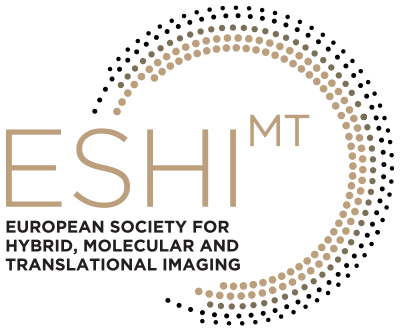
Learn about hybrid imaging now and be at the forefront of medical imaging! Register free of charge for the ESOR Course on Hybrid Imaging in Oncology and receive a grant to cover accommodation plus travel to Vienna!
ESHIMT, in cooperation with the European Society of Radiology (ESR) and the European School of Radiology (ESOR), have decided to support young radiologists, oncologists and nuclear medicine physicians in their specialty training by fully subsidising this unique ESOR course and enabling participants to learn more about hybrid medical imaging.
Applicants must be current ESHIMT and ESR members in training. To become an ESHIMT member now, click here.
Please note places are limited and will be allocated on a first-come, first-served basis. Applications will be accepted until June 10. You will receive further notice about the success of your application in due time. Successful applicants are responsible for their own travel and accommodation arrangements and will receive a travel grant after the course. Applicants who were selected for this programme in the past cannot be considered again.
Course information
This course is aimed at final-year residents, general radiologists, nuclear medicine physicians and oncologists who want to update their knowledge on new applications and state-of-the-art hybrid medical imaging of cancer. No previous practical experience of the subject is required. The expert faculty comprises nuclear medicine physicians and radiologists who will provide a series of lectures describing optimal imaging pathways for oncological diagnosis, follow-up and response assessment. Lectures will be followed by workshops allowing for interactive case discussions.
Hybrid imaging provides more information than only structural or only molecular/functional imaging in several cancers, which facilitates better decisions in treatment and a more accurate idea of prognosis. Combining nuclear medicine and advanced imaging such as CT and MRI is becoming increasingly crucial in the routine staging of oncologic disease, treatment planning, and follow-up. It is important to take advantage of both structural and molecular information in each examination and, with continuous education, most hybrid examinations should be read by one specialist in the future.
Faculty
G. Antoch, Essen/DE; M. Becker, Geneva/CH; T. Beyer, Vienna/AT; S. Gatidis, Tuebingen/DE; M. Gutberlet, Leipzig/DE; M. Mayerhöfer, Vienna/AT; K. Riklund, Umeå/SE; A. Rockall, London/UK; H.-P. Schlemmer, Heidelberg/DE
